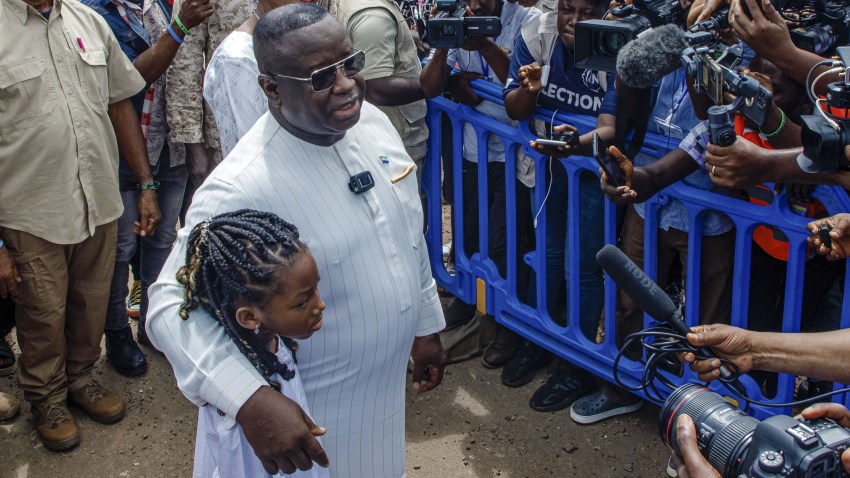When Sierra Leone’s new parliament met for its swearing-in ceremony on July 13, the fact that only one MP from the opposition All People’s Congress, or APC, was in attendance did not reflect the party’s performance in the country’s June 2023 general elections. Instead, it reflected their lack of faith in the credibility of the election’s declared outcome. Despite officially winning 54 of the 135 seats for which direct elections were held in the polls, the APC decided to boycott participating in the national legislature and local councils indefinitely as a protest. Since then, a second APC legislator has defied the party directive and taken the parliamentary oath, but for the most part the boycott has held.
In addition to the opposition, prominent international observation missions and domestic observer groups raised concerns about the results announced by the Electoral Commission of Sierra Leone, or ECSL, for the presidential, parliamentary and local council races conducted in June. Both the European Union and Carter Center issued several statements requesting that the ECSL go beyond the district breakdowns that it released and publicly share presidential results by polling unit in order to improve transparency, to no avail. And with the date for a legal challenge of the outcome now having passed, the official results will not be altered.
According to the ECSL, incumbent President Julius Maada Bio was reelected to a second—and constitutionally final—term in the June 24 presidential ballot, with 56.2 percent of the vote. That put him just 1.2 percent above the 55 percent threshold required to win in the first round. His main challenger, the APC’s Samura Kamara, trailed behind with 41.2 percent. But questions about the official results have centered around four main issues.

